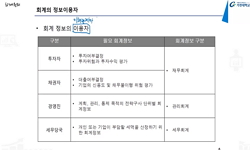This study empirically investigates the relationship between a firm’s manager type and its carbon intensity and examines the effects of information asymmetry and carbon disclosure on this relationship. The findings are as follows. First, in excessiv...
http://chineseinput.net/에서 pinyin(병음)방식으로 중국어를 변환할 수 있습니다.
변환된 중국어를 복사하여 사용하시면 됩니다.
- 中文 을 입력하시려면 zhongwen을 입력하시고 space를누르시면됩니다.
- 北京 을 입력하시려면 beijing을 입력하시고 space를 누르시면 됩니다.


The Relationship between Manager Type and Carbon Intensity and the Impact of Information Asymmetry and Disclosure = The Relationship between Manager Type and Carbon Intensity and the Impact of Information Asymmetry and Disclosure
한글로보기https://www.riss.kr/link?id=A106004828
- 저자
- 발행기관
- 학술지명
- 권호사항
-
발행연도
2018
-
작성언어
-
- 주제어
-
KDC
300
-
등재정보
KCI우수등재,SCOPUS
-
자료형태
학술저널
- 발행기관 URL
-
수록면
97-146(50쪽)
- 제공처
-
0
상세조회 -
0
다운로드
부가정보
다국어 초록 (Multilingual Abstract)
This study empirically investigates the relationship between a firm’s manager type and its carbon intensity and examines the effects of information asymmetry and carbon disclosure on this relationship. The findings are as follows. First, in excessive energy-consuming industries, the carbon intensity of a firm having a professional manager is higher than that of an owner-manager firm. It is inferred that a professional manager is passive toward energy-efficiency investments in reducing carbon emissions because of the risks to his or her compensation and job security based on short-term performance evaluations. Second, the high information asymmetry of such a firm further increases the positive relation between the existence of a professional manager and its carbon intensity. This finding implies that when the information asymmetry between a manager and mandator in such a firm is high, a professional manager can better hide the lack of investment in reducing carbon emissions; thus, a firm has higher carbon intensity. Third, a professional manager’s shareholding does not impact carbon intensity. Finally, when a professional manager firm voluntarily discloses its carbon information, the increase of its carbon intensity is alleviated. The study is the first to confirm the relation between a firm’s manager type and its carbon intensity. The results of this study contribute to confirming that a firm’s manager type is a factor affecting its carbon intensity, which has important implications for managers and investors.
동일학술지(권/호) 다른 논문
-
회계이익품질이 자사주 매입 규모와 미래영업성과에 미치는 효과
- 한국회계학회
- 김경순
- 2018
- KCI우수등재,SCOPUS
-
재무제표 항목의 통합표시수준이 회계이익의 품질에 미치는 영향
- 한국회계학회
- 김유찬
- 2018
- KCI우수등재,SCOPUS
-
- 한국회계학회
- 김선화
- 2018
- KCI우수등재,SCOPUS
-
재무보고의 질이 현금보유의 가치에 미치는 영향 : 감사보수 및 감사시간을 중심으로
- 한국회계학회
- 박종일
- 2018
- KCI우수등재,SCOPUS




 KISS
KISS


